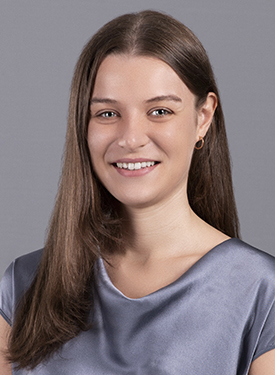Aslihan Asil, antitrust scholar, joins Duke Law School faculty
Asil focuses on improving human welfare, emerging technologies and market structures
 Aslihan Asil
Aslihan Asil
Antitrust scholar Aslihan Asil has joined the faculty of Duke Law School, where she will teach corporate finance and antitrust law.
“I am delighted that Aslihan Asil is joining the faculty. She is a dynamic scholar who works at the intersection of economic theory and antitrust law and has already made substantial contributions to the understanding of commercial markets,” said Lisa Kern Griffin, the Candace M. Carroll and Leonard B. Simon Distinguished Professor of Law.
“The appointments committee was very impressed with her productivity and her creative approaches to examining the effects of legal rules on competition. We also anticipate that she will be an excellent teacher and mentor to Duke Law students.”
Asil earned a PhD in financial economics from Yale University and a JD from Yale Law School. Her research interests include the intersection of law, economics, and public policy. Antitrust law, she said, is a dynamic field that “continuously reinvents its subject” in response to changing market forces, from regular forms of data-driven exclusion to the recent rise of digital platforms and algorithmic pricing. It holds special appeal because of its focus on consumers, she said.
“By centering on consumers, antitrust becomes a powerful vehicle for advancing both everyday well-being, competition, and markets,” Asil said. “It also is a field where rigorous theory and empirical methods meet the lived experiences of millions, making the field not only intellectually stimulating, but also very consequential.”
Asil’s research falls into two categories, she said. One is studying the effects of existing legal doctrine and suggesting changes or updates that will enhance competition and improve consumer welfare.
In Can Robinson-Patman Enforcement Be Pro-Consumer? Asil demonstrates through empirical studies that in states where it is allowed, discriminatory pricing, such as granting wholesale volume discounts to major retailers, can reduce retail competition in the liquor industry and harm consumer welfare.
A second category incorporates economic modeling to examine how legal doctrine can more effectively address new and emerging types of commercial interactions, technologies, and market structures, such as private equity and artificial intelligence.
In Misaligned Measures of Control: Private Equity’s Antitrust Loophole, for example, Asil and co-authors argue that company acquisitions financed through private equity are more likely to avoid antitrust enforcement due to exemptions from notification requirements for certain types of transactions.
In Can Machines Commit Crimes Under U.S. Antitrust Laws? Asil and University of Chicago professor Thomas G. Wollman argue that an AI chatbot that suggests a collusive pricing strategy can satisfy all the requirements for committing a criminal antitrust violation and that a company employing such a bot can be held criminally liable for its actions.
Born in Istanbul, Turkey, Asil said she was impressed by Durham and the Duke University campus during her visits to North Carolina.
“Duke Law is known for its rigorous scholarship, collaborative spirit and commitment to shaping the future of legal thought,” Asil said. “The excellence of the students, the expertise of the faculty and staff, and the breadth of its clinics and centers foster an environment where theory translates into real-world impact. I really look forward to becoming part of this vibrant community.”